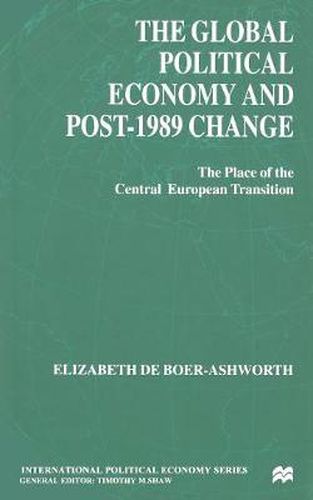Readings Newsletter
Become a Readings Member to make your shopping experience even easier.
Sign in or sign up for free!
You’re not far away from qualifying for FREE standard shipping within Australia
You’ve qualified for FREE standard shipping within Australia
The cart is loading…






This title is printed to order. This book may have been self-published. If so, we cannot guarantee the quality of the content. In the main most books will have gone through the editing process however some may not. We therefore suggest that you be aware of this before ordering this book. If in doubt check either the author or publisher’s details as we are unable to accept any returns unless they are faulty. Please contact us if you have any questions.
This book examines the effect of post-Soviet transitions on current problem solving trends with regards to world capitalism. The fall of Soviet communism left liberal capitalism as the dominant blueprint from which to construct economic development policies. Using Central Europe as an example it is shown that the application of the Western liberal-capitalist model has not been without its difficulties. This book endeavours to place the changes to the global political economy, since 1989, in a theoretical and historical context.
$9.00 standard shipping within Australia
FREE standard shipping within Australia for orders over $100.00
Express & International shipping calculated at checkout
This title is printed to order. This book may have been self-published. If so, we cannot guarantee the quality of the content. In the main most books will have gone through the editing process however some may not. We therefore suggest that you be aware of this before ordering this book. If in doubt check either the author or publisher’s details as we are unable to accept any returns unless they are faulty. Please contact us if you have any questions.
This book examines the effect of post-Soviet transitions on current problem solving trends with regards to world capitalism. The fall of Soviet communism left liberal capitalism as the dominant blueprint from which to construct economic development policies. Using Central Europe as an example it is shown that the application of the Western liberal-capitalist model has not been without its difficulties. This book endeavours to place the changes to the global political economy, since 1989, in a theoretical and historical context.